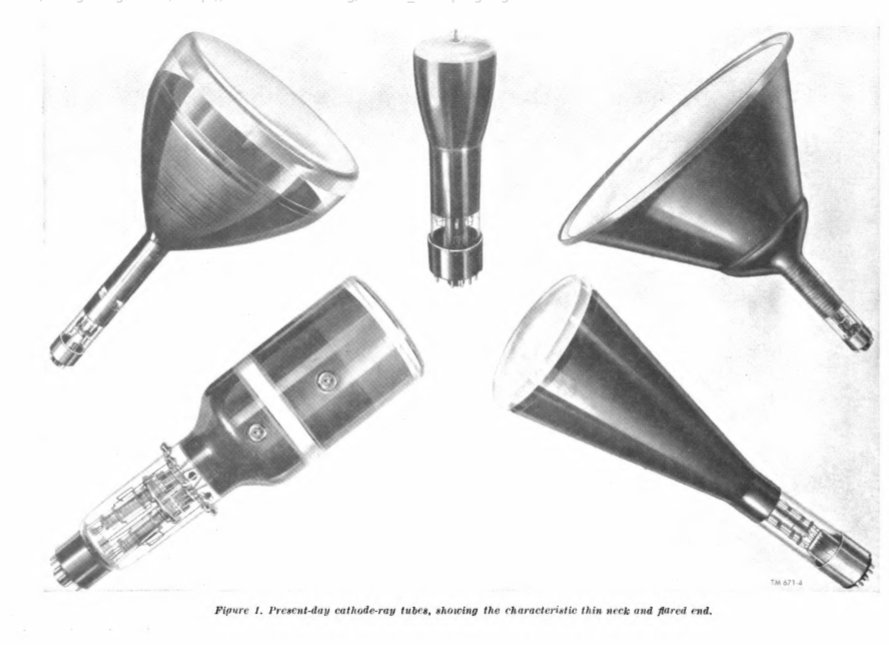Difference between revisions of "Cathode-ray tube"
| Line 3: | Line 3: | ||
The fore-runner of the later cathode-ray tube was the so-called [[Braun tube]], a then (1898) new type of vacuum tube. | The fore-runner of the later cathode-ray tube was the so-called [[Braun tube]], a then (1898) new type of vacuum tube. | ||
The function of the cathode-ray tube is to indicate the behavior of a cathode-ray stream when acted upon by an externally applied electromagnetic field or an externally applied electrostatic field. The tube uses a beam of electrons, the deflection of which is accomplished by electromagnetic or electrostatic fields or both. The indication that appears on the screen is the result of fluorescence of the screen material by the bombarding electrons. Later tubes also indicate the movement of the electron beam while the latter is under the influence of varying electromagnetic of electrostatic fields. | The function of the cathode-ray tube is to indicate the behavior of a cathode-ray stream when acted upon by an externally applied electromagnetic field or an externally applied electrostatic field. The tube uses a beam of electrons, the deflection of which is accomplished by electromagnetic or electrostatic fields or both. The indication that appears on the screen is the result of fluorescence of the screen material by the bombarding electrons. Later tubes also indicate the movement of the electron beam while the latter is under the influence of varying electromagnetic of electrostatic fields. | ||
| + | |||
| + | ==Also See== | ||
| + | [[BC-1032]] Panoramic | ||
==Reference File== | ==Reference File== | ||
TM 11-671 1951 {{pdf|TM 11-671 1951.pdf|TM 11-671 1951}} | TM 11-671 1951 {{pdf|TM 11-671 1951.pdf|TM 11-671 1951}} | ||
Revision as of 14:55, 17 April 2016
The fore-runner of the later cathode-ray tube was the so-called Braun tube, a then (1898) new type of vacuum tube. The function of the cathode-ray tube is to indicate the behavior of a cathode-ray stream when acted upon by an externally applied electromagnetic field or an externally applied electrostatic field. The tube uses a beam of electrons, the deflection of which is accomplished by electromagnetic or electrostatic fields or both. The indication that appears on the screen is the result of fluorescence of the screen material by the bombarding electrons. Later tubes also indicate the movement of the electron beam while the latter is under the influence of varying electromagnetic of electrostatic fields.
Also See
BC-1032 Panoramic
Reference File
TM 11-671 1951
![]() TM 11-671 1951
TM 11-671 1951
